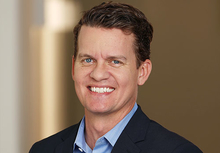By 8:30 a.m. last Tuesday, about the time BMW's new CEO Harald Krueger tumbled to the stage inside cavernous Hall 11, the Frankfurt auto show was veering toward an odd theme.
Amid all the predictions of European momentum -- as represented by 90-some new-vehicle introductions -- all anyone wanted to talk about was who wasn't here.
Krueger, having recovered from his dizzy spell, got a clean bill of health from his doctors and was sent to Munich.
Fiat Chrysler boss Sergio Marchionne skipped the show altogether to pull off a new UAW labor contract in Detroit.
Former VW Chairman Ferdinand Piech didn't make the IAA for the first time since the invention of the Beetle (well, nearly).
And although there were whispers of an Elon Musk sighting, his Tesla Model X SUV was nowhere to be found.
Frankfurt was missing something. Or was it?
Years from now when we reflect on Frankfurt 2015, memories may be less about absent players than about an industry that could finally talk in the present tense about technology.
The likes of Apple, Google and Uber may have been absent from the 33 football fields of Frankfurt floor space, but they were very much part of the conversation. And the "disrupters," as they are being labeled, are shaking up a traditional industry.
"Frenemies" is how Daimler CEO Dieter Zetsche referred to the disrupters shortly after Mercedes showed off an intelligent aerodynamic car that extends an aero tail as it increases speed. Talk about a ride straight outta Silicon Valley.
And one by one, intro by intro, automakers showed that although they're late to the tech party, they now belong in the room.
Autonomous technology was displayed next to in-vehicle apps demonstrated in high-powered, long-range electrics.
For an industry called too blasé about tech adoption, it was a virtual coming-out party.
Volkswagen Group proudly proclaimed that within a couple of Frankfurt shows, its vehicles will be "technology on wheels." Then VW backed it up with world-class intros including an electropowered Audi e-tron quattro, which should make Musk nervous when it launches in 2018.
Audi r&d chief Ulrich Hackenberg called it the "benchmark for future automotive technologies," and Audi promised that more are on the way. Porsche followed with its Mission E. BMW talked about development of "robot cars."
The newly launched 7 series has lines of code in the vehicle that are "mind-blowing," said Ian Robertson, BMW's board member for sales and marketing.
"Maybe the question is: How capable is the auto industry of being more engaged in the IT industry?" Robertson said. "I think very capable."
Seven automakers displayed cars with Android Auto. Even more talked about the industry's transformation.
And maybe that's the real symbol of how far this industry has come. The disrupter threat is real, but it's also now part of the executive lexicon.
And that list includes one leader who was here -- a first-timer to the IAA in her current role. She not only showed up but offered her own tech crystal ball that said as much about General Motors as it did the industry as a whole.
"We will see more change in the industry in the next five to 10 years," GM CEO Mary Barra said, "than we have in the last 50."
It seems the industry is finally ready.









